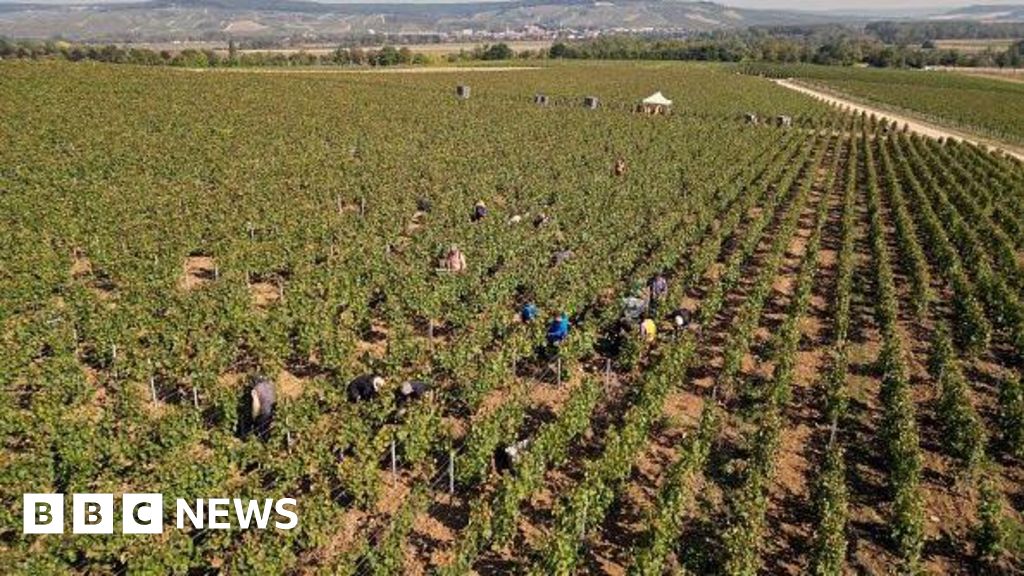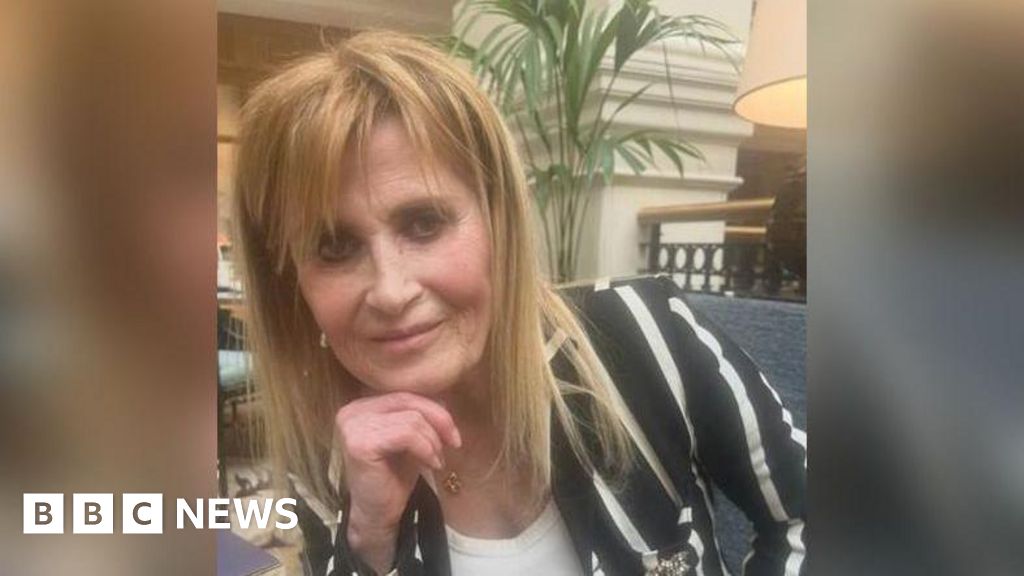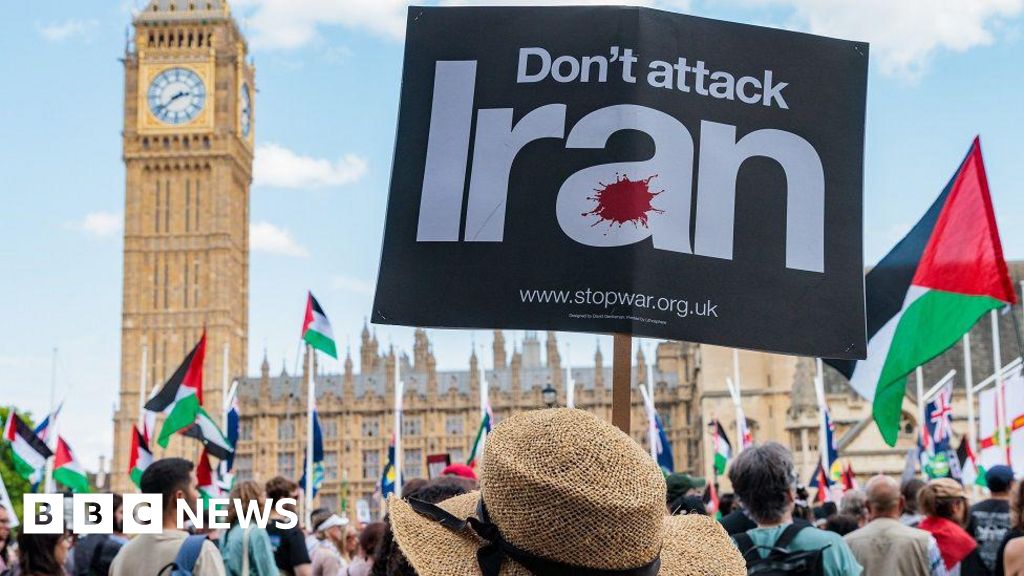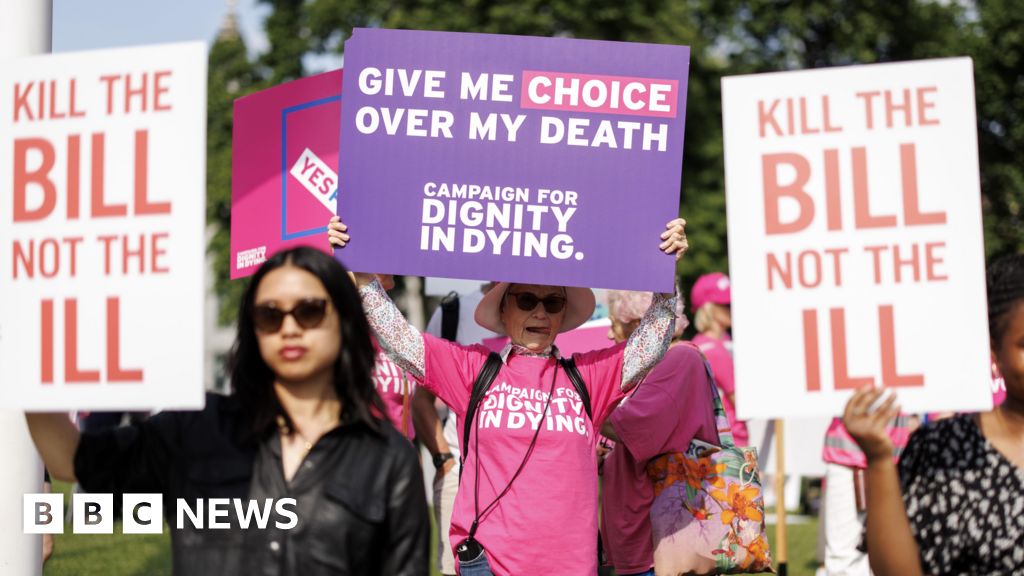BBC Scotland News
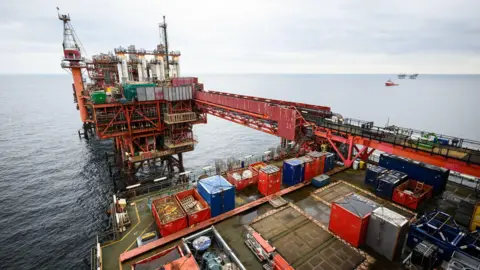 PA Media
PA MediaOperators now have to carry out assessments that take emissions from burning oil and gas into account
The UK government has published guidance on how it will consider fresh applications for oil and gas projects.
Operators will now have to draw up new environmental impact assessments that take emissions released from burning oil and gas into account - not just the emissions from production.
The move will determine whether production can go ahead in the controversial Scottish fields Rosebank and Jackdaw - but gives no indication as to whether ministers would give their approval.
Energy Minister Michael Shanks said the guidance provided clarity on the way forward for the North Sea oil and gas industry.
However climate campaigners say new developments will make "barely a dent" in the UK's reliance on imported fossil fuels.
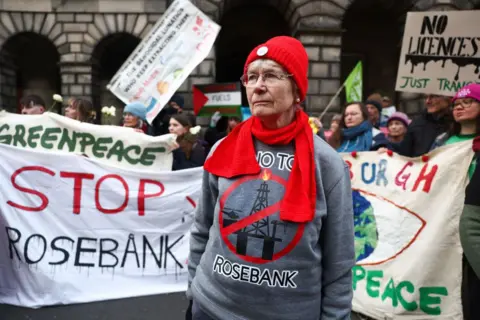 Getty Images
Getty ImagesThe new guidance was drawn up in response to a landmark Supreme Court ruling last year, that Surrey County Council should have considered the full climate impact of burning oil from new wells.
Previously, those assessments took into account emissions generated by the process of extracting oil and gas.
However, they did not count the greenhouse gases which would be released when those fossil fuels were eventually burned - known as "downstream" or "Scope 3" emissions.
In January, the Court of Session in Edinburgh ruled that the decision in that case should apply retrospectively to Rosebank and Jackdaw.
Shell's Jackdaw gas field in the North Sea was originally approved by the previous UK Conservative government, and the industry regulator, in summer 2022.
Permission for the Rosebank oil development, 80 miles west of Shetland in the North Atlantic, was granted in autumn 2023.
Lord Ericht said work on both fields could continue while the new information was gathered but no oil and gas could be extracted unless fresh approval was granted.
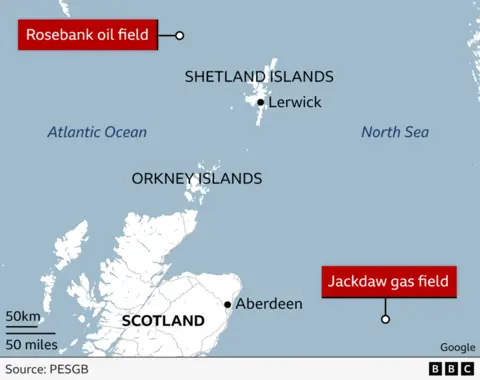
The climate watchdog - Offshore Petroleum Regulator for Environment and Decommissioning - and regulator the North Sea Transition Authority had paused decisions on licenses for new drilling projects and the granting of existing licenses until the government clarified its position.
Publication of the new guidance means offshore developers can submit their applications for consent to extract oil and gas in already-licensed fields.
Energy Secretary Ed Miliband and the regulator will then reconsider whether or not to grant consent, taking downstream emissions into account.
Miliband previously described the licence issued to Rosebank as "climate vandalism".
The UK government said it would consider the significance of a project's environmental impact, "while taking into account and balancing relevant factors on a case-by-case basis such as the potential economic impact and other implications of the project".
No decisions are expected until the end of the summer.
Michael Shanks said: "This new guidance... marks a step forward in ensuring the full implications of oil and gas extraction are considered for potential projects and that we ensure a managed, prosperous, and orderly transition to the North Sea's clean energy future, in line with the science.
"We are working with industry, trade unions, local communities and environmental groups to ensure the North Sea and its workers are at the heart of Britain's clean energy future for decades to come – supporting well-paid, skilled jobs, driving growth and boosting our energy security."
'Incompatible' with climate commitments
Tessa Khan, executive director of the climate campaign group Uplift, said the new guidance means that oil and gas companies will be "finally be forced to come clean over the enormous harm they are causing to the climate".
She said: "In the case of the Rosebank oil field, which Equinor can now seek reapproval for, it is overwhelmingly obvious that the project is incompatible with the UK's climate commitments.
"Whether or not this government then follows the science and rejects Rosebank will be a real test of its climate credibility."
Ms Khan added that Rosebank is a "bad deal" for the UK, would not help lower fuel bills or boost energy independence.
Greenpeace UK said it was right that the government take account of emissions from burning oil and gas in their decision-making.
However, it said approving projects like Rosebank would be a "political sleight of hand" that would benefit oil companies.
The charity's head of climate, Mel Evans, said: "Real energy security and future-proofed jobs for energy workers can only come through homegrown, cheap renewable energy, and that's what ministers should focus on.
"The UK has just been hit by major droughts, wildfires and ocean heatwaves. Rosebank alone could release as many planet-heating emissions as 56 coal plants running for a year. Ed Miliband was right to say approving Rosebank would be climate vandalism - he should remain true to his word."
The update comes shortly after the UK government's Spending Review last week, which included about £200m for the Acorn Carbon Capture and Storage (CCS) scheme in Aberdeenshire.
Shanks also told the BBC he expects plans to be announced "soon" for the future of Grangemouth.

This is a significant moment for the future of the North Sea but it effectively tells us nothing.
What it does, though, is it takes the brakes off future development within existing licence areas.
Operators seeking consent to produce oil and gas will now be allowed to resume their applications, which have been on hold since the Supreme Court ruling.
They'll now have to produce an environmental impact assessment which sets out at all the planet warming greenhouse gas emissions associated with the production and consumption of the product.
Beyond that, they have to set out what impact those emissions will have on the warming of the planet.
To receive consent, they must set a compelling case for why those emissions must be offset against the benefits of giving the project the go ahead.
Then the minister will use a matrix to decide whether to approve or reject any proposal.
We won't really know what impact all of this will have on those decisions until the first of them are made.
So, there's a summer of uncertainty ahead. But we could start to gather a picture of whether the North Sea has a viable future from August onwards.



